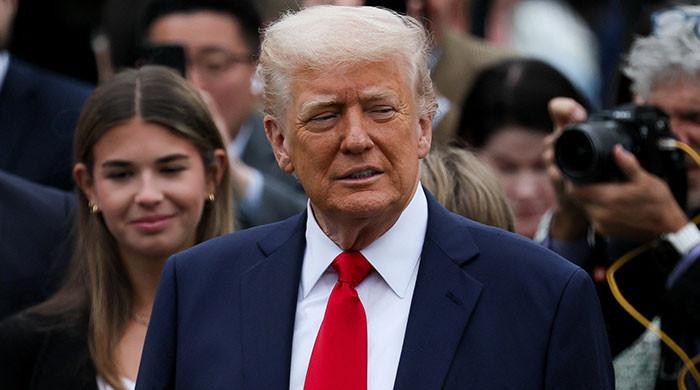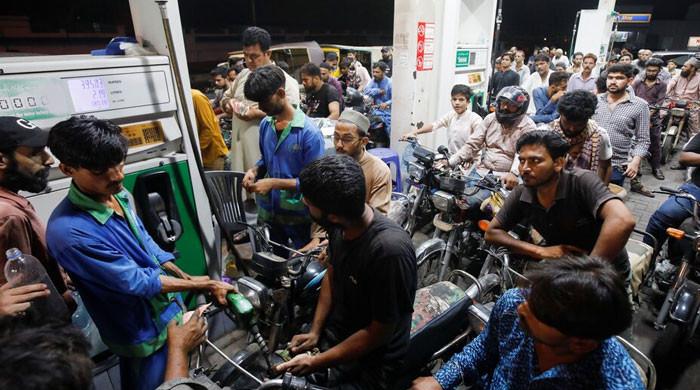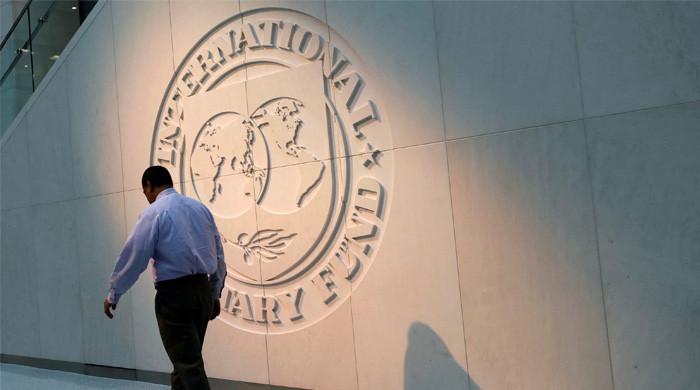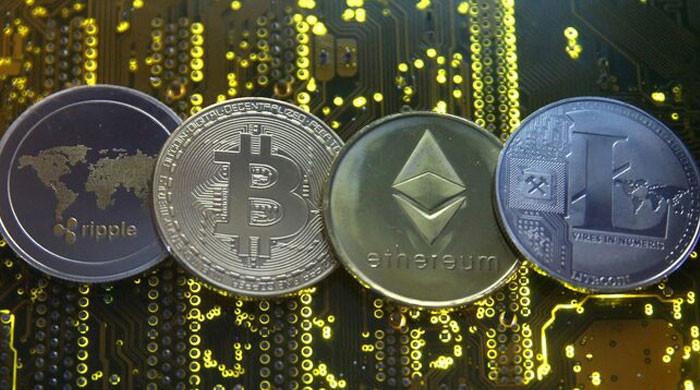Pardon me
President Mamnoon Hussain may well perform the most anticipated and significant executive function of his somnolent tenure yet: pardoning Nawaz Sharif and his children
March 27, 2018
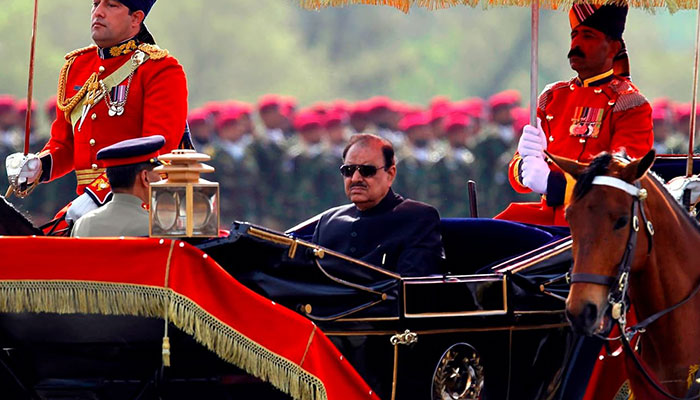
The incumbent President of Pakistan, Mamnoon Hussain, is the subject of relentless visceral jokes as well as iconic social media memes (the internet is a dark, dark place) as an almost catatonic figurehead, bereft of any executive responsibility.
To be fair to Hussain, the 18th Amendment to the Constitution has reduced the office of the president to its most titular form, where signing off on legislation is as good as it gets. Yet, the president may well perform the most anticipated and significant executive function of his somnolent tenure yet: the grant of a pardon to Nawaz Sharif and his children, Maryam, Hussain and Hasan.
The National Accountability Bureau (NAB) has initiated references against the Sharif family for alleged financial graft and corruption, pertaining to properties in the UK, post the Panama/Iqama decision. If convicted, the family faces, inter-alia, prison time as well as the return of wealth procured through allegedly ill-gotten means. The Supreme Court has extended the deadline of the accountability court in Islamabad to May 14, 2018, to conclude proceedings against the Sharifs. The conviction and subsequent imprisonment appear to be a slam-dunk. In this scenario, will the president pardon the Sharifs?
The power to grant a pardon is enshrined under Article 45 of the Constitution, where the president may grant pardon or remit, suspend or commute any sentence passed by any Court, tribunal or authority. The constitutional power of a Pardon is not unique to Pakistan. It was derived from the Royal Prerogative of Mercy, which dated from the Norman Invasion. In the UK, this royal power is delegated to the Lord Chancellor, whereas in the USA it is part of the Constitution. With respect to the latter, US presidents historically used the power for public policy reasons, such as quelling rebellions or granting amnesty in times of war. Examples include the gloriously titled Whiskey Rebellion and the Confederate War. Indeed, President Donald Trump, in a series of posts on Twitter, his preferred (and to many, the only) method of governance, declared that he had “the complete power to pardon,” which was seen as a thinly disguised reference to pardoning himself, if convicted of inter-alia, therefore colluding with Russia. The Constitution of India also recognises the presidential power of pardon (under Article 72 of their Constitution). The Indian Supreme Court has even adjudicated on the matter, which is significant because Indian precedents hold persuasive power in shaping our jurisprudence.
One aspect of Article 45 that appears to polarise legal opinion is whether the power to pardon is a discretionary power exercisable by the president on a stand-alone basis. Or, is the power to be exercised by the president on the advice of the cabinet or the prime minister as provided under Article 48 of the Constitution. A plain wording of Article 45 does not appear to mention the need for the president to seek advice from the prime minister in case of a pardon, but post 18th Amendment; this may not be as cut and dried.
The Supreme Court has swung the axe mercilessly on subjective and discretionary exercise of powers by executive bodies and may not hesitate in applying the same standard to the president. This constitutional conundrum may achieve greater significance in the event of a caretaker set up prior to the general elections, where the president may be required to consult the caretaker prime minister, prior to exercising such power, failing which the specter of judicial review looms.
It’s also important to distinguish between a pardon and a remission of a sentence. A pardon has the effect of extinguishing a sentence (i.e any jail time or financial penalty incurred), whereas a remission reduces a sentence. The Supreme Court in its judgment, in the ironically titled case of Mian Muhammad Nawaz Sharif vs. Federation of Pakistan (PLD 2009 SC 284), held that the president only has power to grant pardon with regard to a sentence and cannot set aside or pardon a conviction. In other words, if the Sharif family is convicted, the president may be able to set aside their sentence, but their guilt shall stand, which Sharif’s opponents are well aware of and shall fully utilise in building a future narrative.
When expressing love for a significant other, batting in cricket or generally doing meaningful things in life, timing is everything. Exercising powers under Article 45 would be no different. If the accountability court convicts the Sharifs and passes a sentence for imprisonment or attachment or sale of their personal properties, they have a remedy under Section 426 of the Code of Criminal Procedure (CrPC), whereby an appellate court (the high court) can suspend the sentence, pending the appeal. The power of suspension is a discretionary one, which may or may not be granted by the court, a consequence of which the Sharif family could face.
There is a previous precedent where Asif Ali Zardari as former president, pardoned then-interior minister Rehman Malik in a 2004 financial graft conviction upheld by the Lahore High Court. Zardari pardoned Malik within hours of the sentence and thus nullified the need for filing an appeal to the Supreme Court against the sentence.
If the Sharifs do not avail the remedy of Section 426 of the CrPc and the president pardons the Sharif family in the same vein as Malik, what implications would that have on #mujhekiyonnikala? One suspects that the pardon will be engineered swiftly because (a) Nawaz Sharif and jail time haven’t quite complemented each other in the past and; (b) Sharif just doesn’t want to disturb the hornet’s nest, he wants to stomp all over it. One can almost see the sound bytes emanating out of Nawaz and Maryam Sharif’s rallies; “they wanted to throw me in jail for the crime of serving the nation.” A motorway reference would obviously follow.
As always, all eyes will be on the Supreme Court. Will they initiate a judicial review of the president’s pardon and declare it illegal or in contravention of the Constitution? The Supreme Court has in the past consistently held that the president’s power of remitting or suspending a sentence or even pardoning is an unfettered right that has a very limited scope for judicial review. The Supreme Court of India has the same view. In the judgment of Maru Ram vs Union of India (1981 (1) SCC 107) it held that the power of pardon shall never be exercisable arbitrarily or mala fide and, ordinarily, guidelines for fair and equal executions are guarantors of the valid play power. In plain speak, the president cannot pardon in a subjective, whimsical manner. The Maru Ram guidelines may be all the invitation that our supreme court needs to exercise its original jurisdiction and initiate a judicial review of the president’s pardon. This may create further fissures in already stretched battle lines between Nawaz Sharif and the judges and may have far-reaching constitutional and political implications.
Food for thought. The power of a pardon was in essence a power exercised by monarchs. The Supreme Court has repeatedly stressed in landmark judgments that Pakistan needs to actually become a democratic republic rather than paying lip service to the idea. In this scenario, is a presidential power of pardon a genuine constitutional power or yet another executive tool for abuse? Can it be exercised in a colorable manner? More significantly, will the grant of a pardon become the new National Reconciliation Ordinance (NRO) insofar that the Sharif family assets shall not be liquidated and gain immunity, post pardon? The NRO was consigned to the dustbin of history. What judicial verdict, if any shall be passed post pardon?
Watch this space…
Ali is a barrister based in Lahore. He tweets at @RezaAli1980
Note: The views expressed in the article are those of the author, and do not necessarily reflect the official policy or position of Geo News or the Jang Group.






